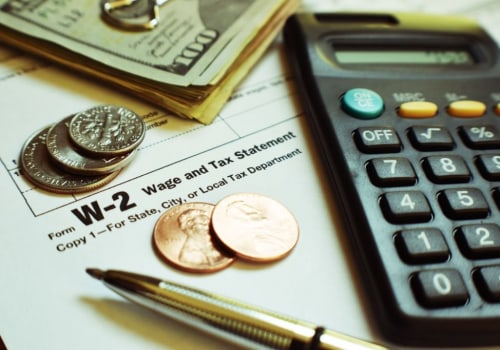You can avoid a garnishment by filing returns on time and paying your taxes in due time. If you need more time to apply, you can request an extension. If you can't pay what you owe, you should pay as much as you can and work with the IRS to resolve the remaining balance. Contact the IRS immediately to resolve your tax liability and request a tax exemption.
The IRS can also release a tax if it determines that the tax is causing immediate economic hardship. If the IRS denies your request for tax release, you can appeal this decision. You can appeal before or after the IRS imposes a tax on your salary, bank account, or other property. Once the garnishment proceeds have been sent to the IRS, you can file a claim to have it returned to you.
You can also appeal the IRS denial of your request for the return of the encumbered assets. For a full explanation of your appeal rights, see Publication 1660, Collection Appeal Rights (PDF). When the IRS collects a person's property, it assumes financial ownership of the asset until the tax debt is paid in full. However, you could get an IRS tax released with any of these 10 effective tactics.
You have 30 days from the time the IRS notifies you of your intention to seize an asset to file a formal appeal. The appeal temporarily prevents the tax from being enacted until a decision is made about your tax situation. The IRS has 10 years to collect a debt you owe. If the end of those 10 years is approaching, you can simply wait for the statute of limitations to expire.
After the 10 years have elapsed, your debt is automatically acquitted. You don't have to make any debt payments after that period has elapsed. Depending on the age and amount of your tax debt, you could consolidate it into a Chapter 13 bankruptcy in which you pay your debts progressively every month. On rare occasions, you could get a tax debt forgiveness with a Chapter 7 bankruptcy.
This is the fastest way to get the IRS to release a tax. If you pay your taxes in full, the IRS will immediately stop all collection activity. However, most people only get into this situation because they can't pay their taxes in full. If you're on that ship, you might want to consider a payment plan or a tax settlement if you qualify.
If you receive a final notice of intent to tax from the IRS, the agency can begin seizing your assets within 30 days, unless you take action. With a tax levy, the IRS can seize a variety of assets and does not indicate what assets it will collect. In most cases, they generally look first for the easiest assets to obtain. Here are some of the most common types of property that the IRS will attempt to seize.
You can appeal the garnishment if the IRS didn't follow the correct protocol, if you've already paid the tax liability, or in some other situations. For it to take effect, you must appeal within 30 days of receiving your final notice of intent to garnish, but you can also appeal after that. The second most common IRS tax is a bank tax. The IRS can garnish all the funds in your bank account up to the amount you owe in back taxes, interest and penalties.
When the IRS contacts your bank, the bank will suspend the funds for 21 days. If you have outstanding checks or automatic payments, you'll need to deposit more money to cover them. Otherwise, they will overdraw your account or bounce back. After the 21 days have elapsed, the bank will send the money to the IRS after the 21 days have elapsed.
The garnishment will only apply to funds that are in your account when the bank receives the notification. It will not apply to any new deposit unless the IRS sends another tax. If you want to release a bank lien, you must act quickly before the 21 days have passed. If you can pay in full, this is the most effective way to stop a tax lien.
To make a full payment, some taxpayers use their savings, sell assets, or borrow from friends or family. If you can find a loan with a lower interest rate than the IRS charges for penalties and interest, you may even want to apply for a loan so you can pay your taxes in full. With an installment agreement, you make monthly payments to pay your taxes over time. Generally, you must complete payments within a period of 84 months or less.
Interest continues to accrue, but as long as you make payments on time, the IRS reduces the penalty for non-payment by 50%. In general, taxpayers should request a suspension of tax collection once an installment agreement is pending. This is similar to a regular installment agreement, except that you pay what you can afford on a monthly basis. The IRS will review your financial situation and determine what you can pay on a monthly basis.
In most cases, collection activity will stop. .



